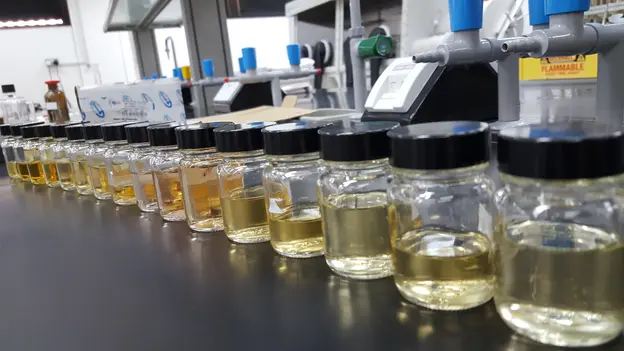Tandem Project
Date Fruit in Medicine – Health and Social Factors
Laboratory Study
The date palm tree may have been the first tree cultivated by humans, who started harvesting its fruit more than 7,000 years ago. Its fruit is mentioned in the Quran at least 20 times, scholars say, and twice as many times in the Bible. The Sumerians called it the ‘Tree of Knowledge of Good and Evil’. The UN Food and Agriculture Organization (FAO) said ‘few plant species have developed into an agricultural crop so closely connected with human life as has the date palm’.
Currently, the date palm tree and its traditions are included in UNESCO’s list of Intangible Cultural Heritage of Humanity. The agency congratulated the 14 Middle Eastern countries that had put forward the nomination and praised the date palm’s role in civilization. ‘Date palm knowledge, skills, traditions and practices have played a pivotal role in strengthening the connection between people and the land in the Arab region, helping them face the challenges of the harsh desert environment,’ UNESCO stated on December 11, 2019. ‘One could go as far as to say that, had the date palm not existed, the expansion of the human race into the hot and barren parts of the ‘old’ world would have been much more restricted’, the UN-FAO stated.
AGYA members Dr. Mohamed Alhamdani and Prof. Dr. Amro Babiker Eltayeb in cooperation with AGYA Alumnus Dr. Younis Baqi focus their research endeavors on this cultural and economically important fruit. They concentrate on the therapeutic value of the date fruit with its significant antioxidant, antibacterial, antifungal, and anti-proliferative properties. By analyzing the pharmacological properties under different conditions and with a variety of agents, the project highlights the health-promoting conditions of natural compound extracted from date fruit. The evaluation is conducted in collaboration with the King Saud University, Saudi Arabia, the University of Bonn, the Deutsches Krebsforschungszentrum (DKFZ) in Heidelberg, and Sultan Qaboos University in Oman.
The aim of this project is to investigate the role of natural products extracts of date fruit on pancreatic cancer. The findings suggest a new approach for targeting pancreatic cancer through the modulation of PSC activity, thereby possibly enhancing the effect of known anticancer drugs. Additionally, date palm fruit appears to have chemopreventive activity protecting from pancreatic and probably other types of cancer, and thereby might be a useful candidate to the pharmaceutical and nutraceutical industries in the development of natural compound-based industrial anticancer products.
This project is part of a research series. So far, collected information about the date palm tree as well as preliminary results have been published in few articles.
- Disciplines Involved
- Natural Product, Pharmaceutical Chemistry, Molecular Biology, Food Safety & Waste Management
- Cooperation Partners
- Sultan Qaboos University, Oman
- University of Bonn, Germany
- German Cancer Research Center, Germany
- King Saud University, Saudi Arabia
- Project Title
- Investigating the Bioactive Properties of Natural Products of GCC Origin – Part X: Palm Tree (Phoenix Dactylifera L.), Health and Socioeconomic Factors
- Year
- 2021
- Funding Scheme
- Tandem Project
- Countries Involved
- Germany, Oman, Saudi Arabia
- AGYA Publication
- Anthraquinone Dyes: A Synthetic and Chemical Characterization Protocol for an Industrial Chemistry Laboratory Course
- Preventive and Therapeutic Effects of Silybum marianum Seed Extract Rich in Silydianin and Silychristin in a Rat Model of Metabolic Syndrome
- Phoenix dactylifera L. (date palm) fruit extracts and fractions exhibit anti-proliferative activity against human pancreatic cancer cell lines
- Date Palm Tree (Phoenix dactylifera L.): Natural Products and Therapeutic Options
- Antifibrotic and Tumor Microenvironment Modulating Effect of Date Palm Fruit (Phoenix dactylifera L.) Extracts in Pancreatic Cancer



